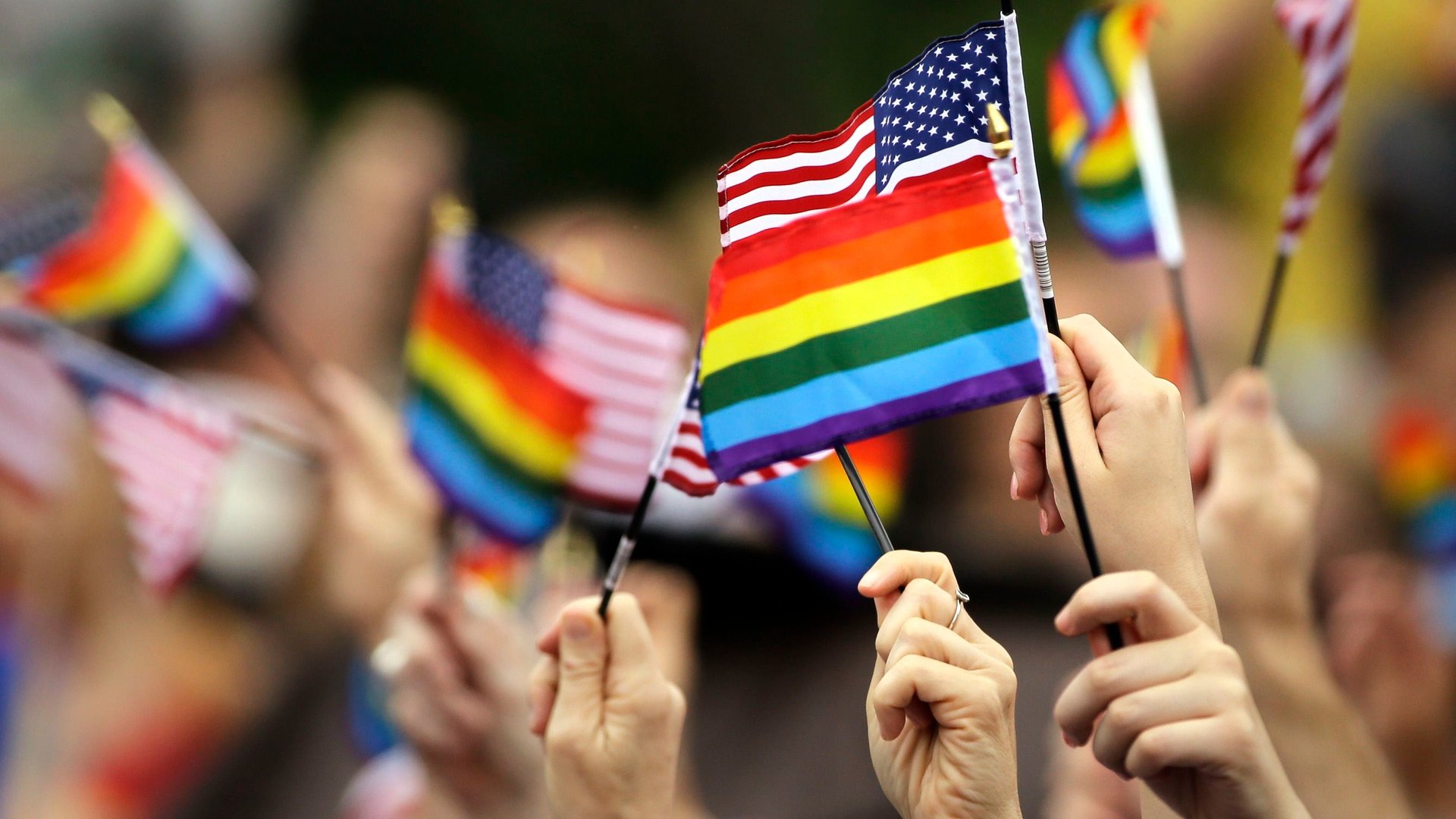The first big policy win for gay rights in the US after same-sex marriage
As the US Supreme Court ruled that same-sex marriage is legal in all 50 states, the “what’s next?” calls began, and some quickly pointed out the awkward fact that many states which now allow same-sex couples to marry also fail to protect residents from being fired because they’re gay. The next big battle, some activists said, would be workplace discrimination against the LGBT community.


As the US Supreme Court ruled that same-sex marriage is legal in all 50 states, the “what’s next?” calls began, and some quickly pointed out the awkward fact that many states which now allow same-sex couples to marry also fail to protect residents from being fired because they’re gay. The next big battle, some activists said, would be workplace discrimination against the LGBT community.
Now, without any fanfare—not even a press release—that battle appears to be at least partly won. The federal commission that investigates these claims has ruled that discriminating against lesbian, gay, and bisexual employees for their sexual orientation counts as discrimination on the basis of sex, which is prohibited nationwide in Title VII of the Civil Rights Act. The five-person Equal Employment Opportunity Commission, appointed by the president, released the decision earlier this week, Buzzfeed pointed out.
This is not a new law, but it’s a clarification that’s necessary because the law does not specifically prohibit discrimination based on sexual orientation: This expands the definition of sex discrimination.
It’s very simply stated: “‘Sexual orientation’ as a concept cannot be defined or understood without reference to sex. … It follows, then, that sexual orientation is inseparable from and inescapably linked to sex and therefore, that allegations of sexual orientation discrimination involve sex-based considerations.”
The EEOC didn’t publicize the decision, a spokeswoman told Quartz via email “because we were the adjudicators in this determination, and not advocates.” Putting out a news release, she said. “would be akin to a court of appeals issuing a news release each time they handed down a decision.”
The ruling doesn’t hold the legal weight of a Supreme Court decision, but it applies to federal employees, and federal courts that receive discrimination complaints can use it as a form of precedent. A number of states do specifically protect employees on the basis of sexual orientation, so employees facing discrimination in those states can file a state lawsuit without going through the federal government or the commission.
This decision does protect federal employees, who can file discrimination claims with the EEOC. It also applies to the way the EEOC will handle outside complaints involving private companies. In order to sue a company for discrimination in federal court for sexual orientation discrimination, a complainant must first file a charge with the EEOC, attorney Nathaniel Glasser tells Quartz.
This is not a new stance for the EEOC; it made a similar ruling on transgender discrimination three years ago, and has successfully used sex discrimination as a basis to litigate LGBT workplace discrimination for a while—using the idea that sex discrimination applies because people are being punished based on who they associate with, and citing a 1989 Supreme Court decision that discrimination on the basis of gender stereotyping is unconstitutional, as Glasser noted in the National Law Review.
Glasser tells Quartz that this ruling goes beyond those justifications, though; an employee doesn’t need to prove the discrimination involved gender stereotyping or associating with the same sex for an actionable complaint. Now, being discriminated against just for being being lesbian, gay, or bisexual is actionable, by the commission’s standards.
As the Washington Post notes, it remains to be seen how much federal circuit courts will adhere to this new interpretation. The only way to really ensure workplace protection for the LGBT community would be for Congress to legislate to include these groups in a protected class of citizens, or through a Supreme Court ruling interpreting sex discrimination as applying to the community. Still, this is a big step.